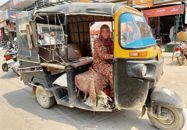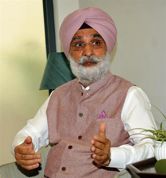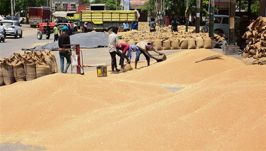
Photo for representational purpose only. iStock
London, August 27
A UK Opposition Labour Party member of Parliament and shadow minister for women and equalities has called for a statutory inquiry into medical research dating back to the 1960s that led to Indian-origin women being given chapatis containing radioactive isotopes to combat iron deficiency.
Controversial experiment
Around 21 Indian-origin women in Coventry were given bread containing Iron-59, an iron isotope, as part of a research trial in 1969 into iron deficiency in the city’s South Asian population
Taiwo Owatemi, who is the MP for Coventry in the West Midlands region of England, said in a post on X – formerly Twitter – recently that she is “deeply concerned” for the women and families impacted by the study.
Why were they never identified?
How was this allowed to happen? Why were the recommendation of the MRC report to identify the women never followed up so that they could share their stories, receive any support needed? Taiwo Owatemi, Coventry MP
Around 21 Indian-origin women identified through a general practitioner (GP) in the city were given the bread containing Iron-59, an iron isotope, as part of a research trial in 1969 into iron deficiency in the city’s South Asian population.
“My foremost concern is for the women and the families of those who were experimented on in this study,” said Owatemi.
“I will be calling for a debate on this as soon as possible after Parliament returns in September followed by a full Statutory Inquiry into how this was allowed to happen, and why the recommendation of the MRC [Medical Research Council] report to identify the women was never followed up so that they can share their stories, receive any support needed, and so that lessons are learnt,” she said.
An MRC spokesperson said an independent inquiry, commissioned following a documentary on Channel 4 in 1995, had examined questions raised.
According to a BBC report, it emerged at the time that about 21 women were involved in the experiment after seeking medical help from a city GP for minor ailments. The study was carried out due to concerns of widespread anaemia among South Asian women and researchers suspected traditional South Asian diets were to blame. Chapatis containing Iron-59, an iron isotope with a gamma-beta emitter, were delivered to participants’ homes. They would later be invited to a research facility in Oxfordshire to have their radiation levels assessed.
It was reported that the MRC said the study proved that “Asian women should take extra iron because the iron in the flour was insoluble”. The MRC said in a statement it remained committed to the highest standards, including “commitment to engagement, openness and transparency”.
“The issues were considered following the broadcast of the documentary in 1995 and an independent inquiry was established at that time to examine the questions raised,” the statement said.
Join Whatsapp Channel of The Tribune for latest updates.



























